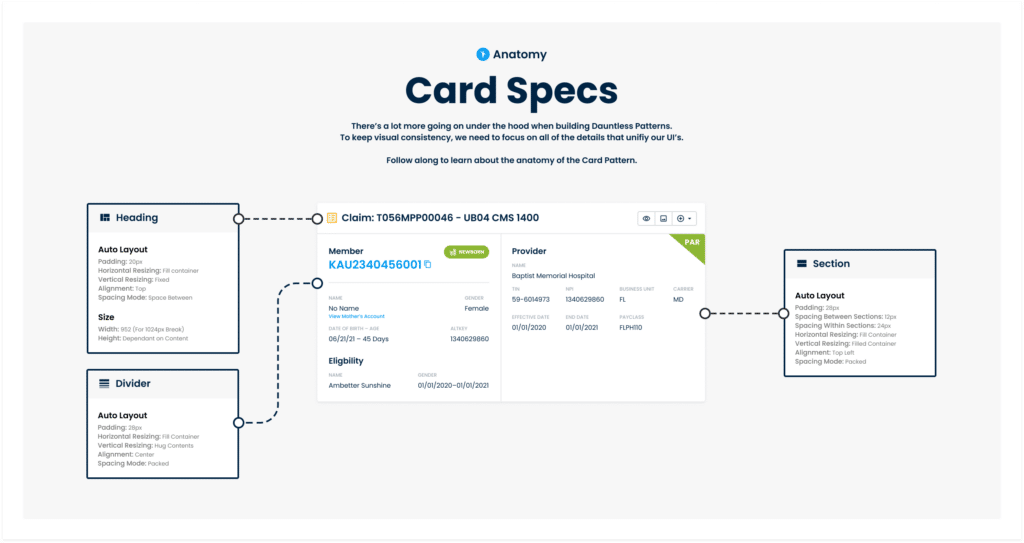At Centene, we work in a decentralized environment where each UX designer leads their own product team. Each designer is building their own products, solving their own problems, and pulling from the same design system. However, with a decentralized environment comes hurdles in consistency between products and how certain problems are solved. At Centene, we were witnessing multiple teams solving the same problems without realizing their efforts were redundant with one another. This is how we solved the problem.

Let’s say Team 1 is working on a product and they need to add a scheduling feature to the application. Because the scheduling feature is complex, it can be built using pieces from the design system, however, is too complex to be stored in the design system itself. Meanwhile, Team 2 is attempting to solve the same problem and doesn’t realize Team 1 is already building a solution.
The first problem that needs solving is the ability for Team 2 to be informed on the things that Team 1 is working on. We solved this with a more formalized design studio. In this meeting, our designers walk each other through what they’re currently working on and how they’re solving that problem.

The second problem that needs solving is a single, solitary place to store these features. For that, we created what we call a Pattern Library. Similar to a design system, large features can be stored here, modified for individual team usage, and pulled from. And because it’s stored within Figma, all teams have visibility to it and are able to contribute.
